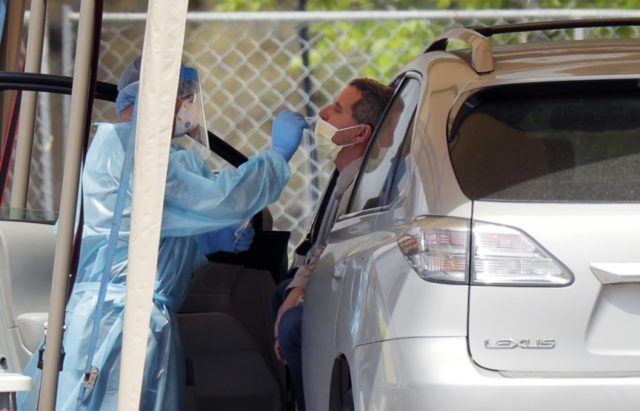The same federal agency that enforces the Health Insurance Portability Accountability Act (HIPAA) meant to fiercely guard individuals’ medical records is implementing protocol to allow first responders to have access to patient information to protect them for becoming infected with the coronavirus.
This would allow law enforcement personnel and paramedics to see records if a person has been infected or exposed to the coronavirus, HHS announced on Tuesday.
Law360 reported on the announcement:
According to guidance from the department’s Office for Civil Rights, health care providers can also share coronavirus patient information when first responders may be at risk of infection or when the information is necessary to “prevent or lessen a serious and imminent threat.” They can also share the information to notify a public health authority to control or stop the spread of disease, the department said.
HHS shared the guidelines, which clarify when and how the protected information can be shared without an individual’s authorization under the Health Insurance Portability and Accountability Act, to protect first responders in the midst of the COVID-19 pandemic, the department said in a statement Tuesday. Protected information can include a patient’s name and other identifying information, per the guidance.
Roger Severino, director of HHS’s Office for Civil Rights, said in a statement that first responders are more vital during this health emergency “like never before.”
“[W]e must do all we can to assure their safety while they assure the safety of others,” Severino said. “This guidance helps ensure first responders will have greater access to real-time infection information to help keep them and the public safe.”
HHS did includ language that those under HIPAA must make “reasonable efforts” to limit the personal information disclosed and that it should be the “minimum necessary.”
“The HIPAA Privacy Rule protects the privacy of patients’ health information (protected health information) but is balanced to ensure that appropriate uses and disclosures of the information still may be made when necessary to treat a patient, to protect the nation’s public health and for other critical purposes,” HHS said last month, according to Law360.
Follow Penny Starr on Twitter

COMMENTS
Please let us know if you're having issues with commenting.